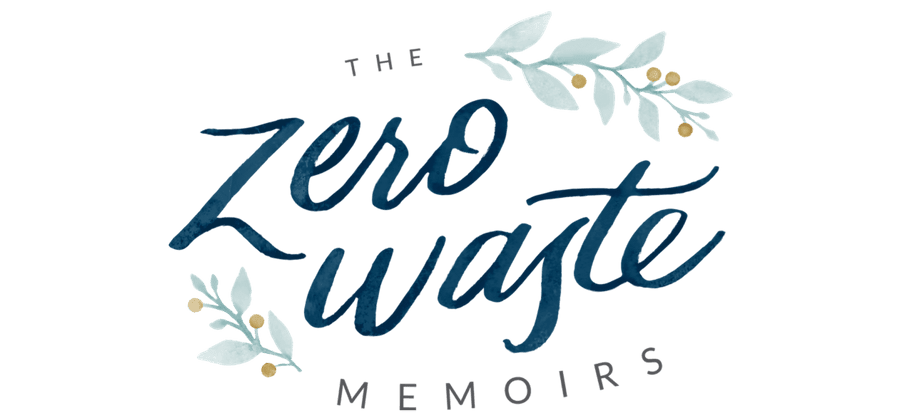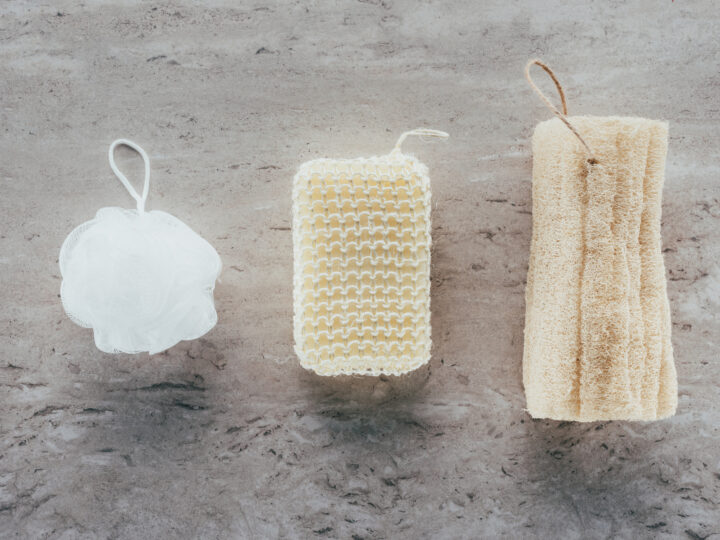A good skin care routine always includes an exfoliation step, to get rid of dead skin cells and dirt and allow moisturizer to be more easily absorbed. A natural, sustainable loofah, dried from gourds, has been used for well over a hundred years to scrub our skin, but plastic bath poufs have become the more popular product in our showers.
Make the switch back to the original, eco-friendly body scrubber by opting for one made from natural products. Here, we explore what to use instead of a loofah.
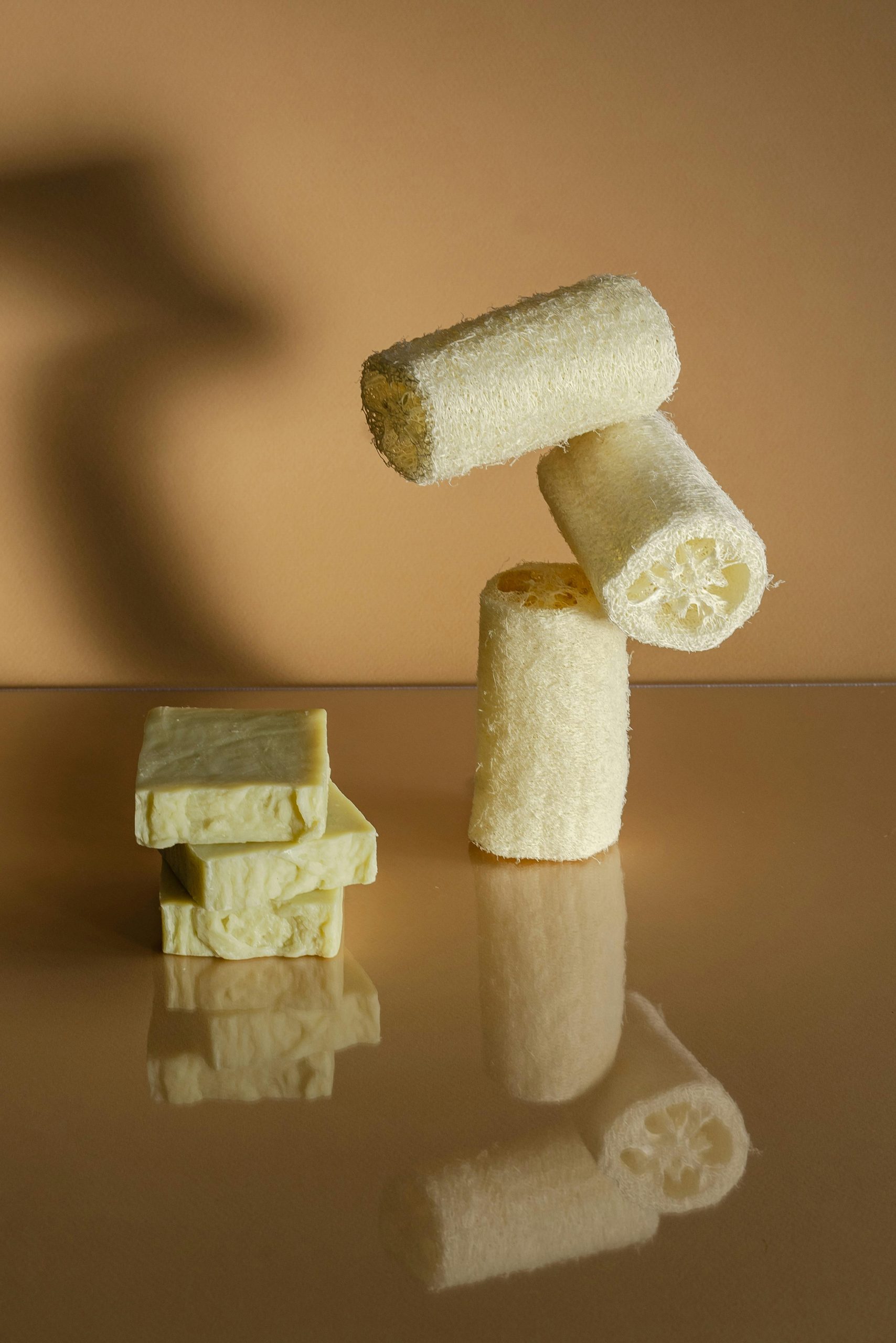
This article may contain compensated/affiliate links. See our full disclosure here.
Table of Contents
What is a Loofah?
A loofah (or luffa) actually refers to a natural product, the matured fruit of a type of gourd, in the same family as pumpkins and cucumbers. Their fibrous structure makes them good sponges, and the rough texture means that they work as skin exfoliators, scrubbing away dead skin cells and dirt from pores.
Loofahs have been cultivated for millenia, and the concept of exfoliation was popularized by Louis Kuhne’s ‘friction baths’ back in the late nineteenth century, and the patenting of the loofah mitt in 1889.
Despite the availability of a perfectly good, natural product, plastic loofahs or ‘bath poufs’ have become commercially popular. They mimic the texture of a natural loofah, as a scrunched up ball of plastic netting.
This switch to a plastic product may have started during World War Two, when imports of loofahs which were mainly sourced from Japan, were cut off. The popularity of the plastic version may then have been maintained as they are less prone to mold, cheaper and (some believe) look more attractive.
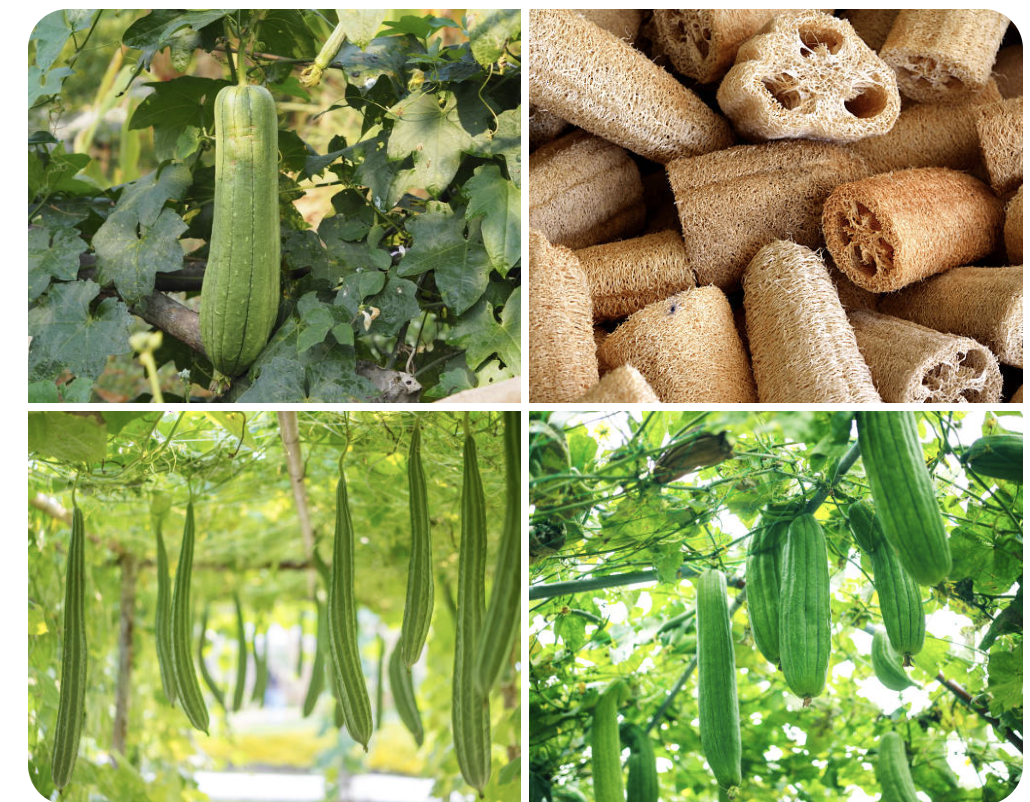
Why Switch to a Zero Waste Loofah Alternative?
Non-natural loofahs are made from soft plastic, which is made from virgin plastic each time as it can only be recycled into a hard, composite type of plastic. Because they are stored in a wet shower environment and are prone to mold, loofahs are discarded and replaced on a regular basis – up to every two to three months.
The use of plastic in the shower also allows microplastics, which are shed during use, to wash down the drain directly into the water system.
Natural loofahs, on the other hand, are completely compostable and will break down into their natural elements, and are the best loofah alternative. They also tend to have a rougher texture than can be achieved with plastic, which works better as an exfoliant.
How are natural loofahs made?
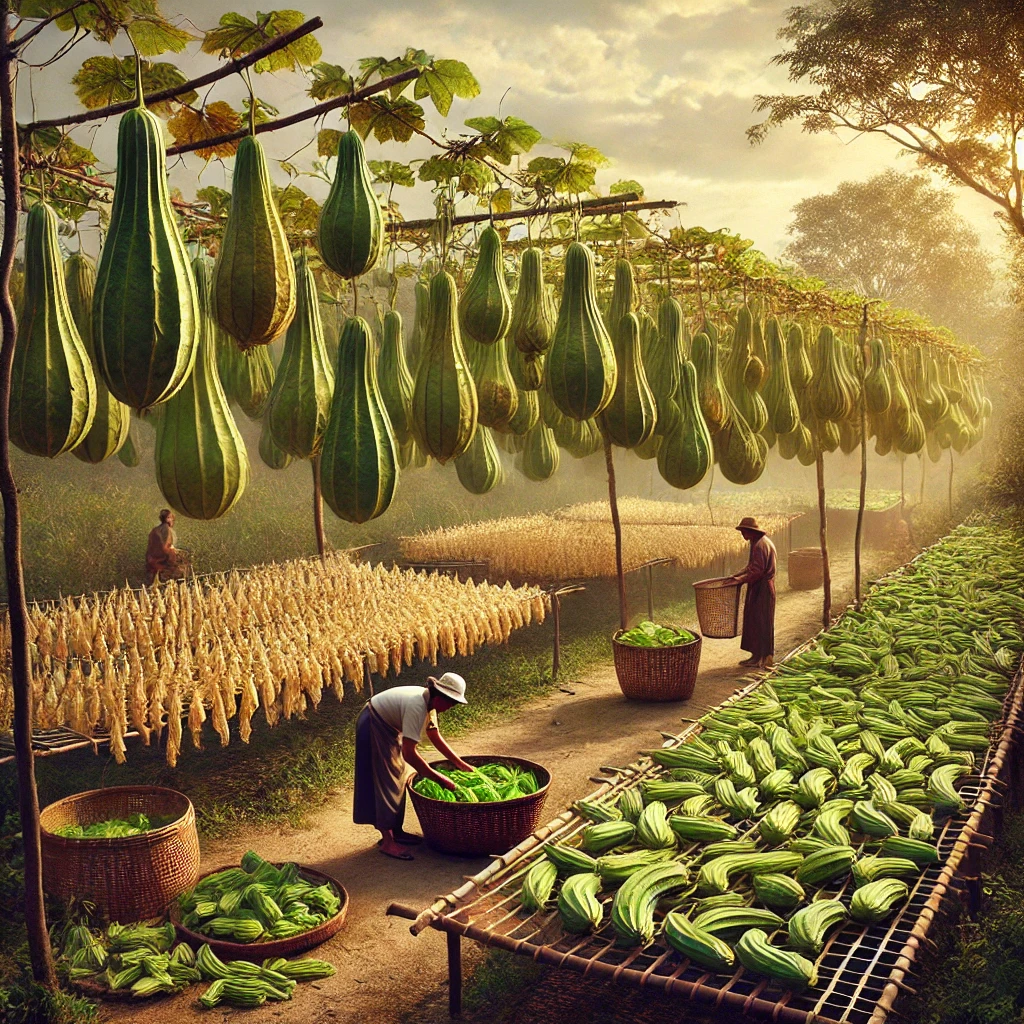
Natural loofahs are made from the mature fruits of a type of tropical gourd plant that grows as a vine. Gourds are soaked, peeled and the seeds removed, and then dried out to leave the fibrous interior.
Commercially grown loofahs are mainly produced in China, Korea, India, Japan, Central America and Brazil, but they are produced in smaller volumes all around the world. You can even grow loofahs in your own garden, but they take a long time to produce a mature fruit, and will need frost protection in colder climates.
Types of Natural Loofah Products
An environmentally-friendly loofah can be made into a wide variety of products, that serve as a shower pouf alternative and zero waste body scrubber.
Loofah Sponge

Where to Buy Natural Loofah Sponges:
- Buy this 4 pack on Amazon
- Buy Natural Loofahs from Eco Roots
- Buy Gourd Shower Loofafs from Earth Hero
- Buy Loofahs on Etsy
Loofah Glove/Mitten

Where to Buy Loofah Gloves & Mittens:
- Buy Organic Egyptian Loofah Mit from Amazon
- Buy Handmade Loofah Glove from Etsy
Loofah Brush
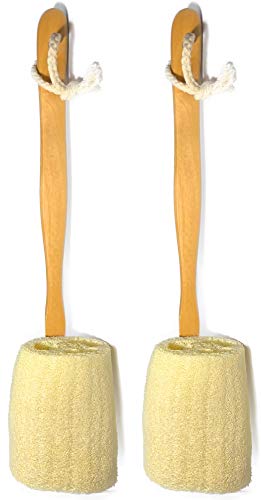
Where to Buy Loofah Brushes:
- Buy 2 pack of Loofah Brushes from Amazon
- Buy a Loofah Back Scrubber from Etsy
Loofah Slippers
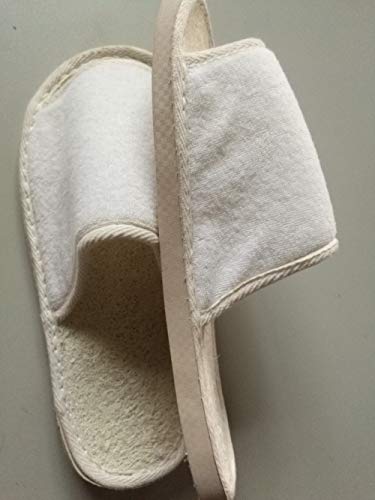
Where to Buy Loofah Slippers:
- Buy Loofah Spa Slippers from Amazon
- Buy Biodegradable Loofah Slippers from Etsy
Loofah Dish Scrubbers

Where to Buy Loofah Dish Scrubbers:
- Buy Loofah Dish Scrubbers on Amazon
- Buy Loofah Kitchen Sponges from Earth Hero
- Buy Loofah Dish Sponges on Etsy
Eco-Friendly Shower Pouf

Where to Find Eco-Friendly Shower Poufs:
- Buy Sustainable Exfoliating Loofa Pouf on Amazon
- Buy Hessian Cotton Shower Pouf on Etsy
How to Keep Natural Loofahs Clean and Long-Lasting.
All loofahs, whether they are natural or synthetic, are prone to mold because they are kept in a moist environment. Natural loofahs can get dirty more quickly than plastic bath poufs, however, so it’s even more important to keep them clean.
After every use, wring them out and hang them to dry if possible in a place that is outside of the shower stall. Clean your loofah once a week by soaking it in dilute bleach or vinegar, or putting it through a dishwasher cycle. Even if you take these steps, a loofah will still need to be replaced about once every four weeks, and more often if mold starts to appear or it begins to smell.
The original loofah is a completely natural, degradable product that works perfectly well as an exfoliating tool. Given how readily available they are, this may be one of the simplest switches that you can make to reduce your consumption of plastic and find a zero waste bath sponge.
Next time your plastic bath pouf needs replacing, try a natural loofah instead!
